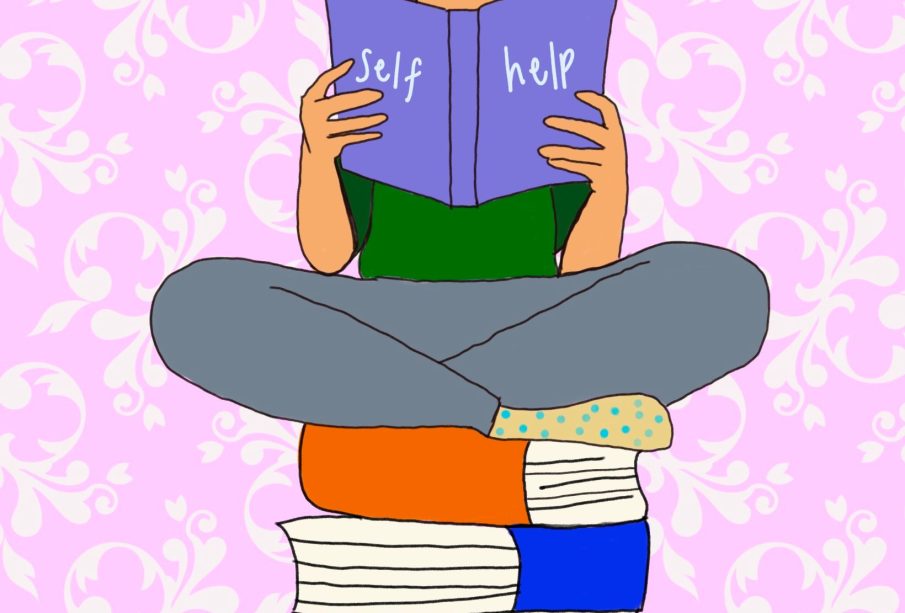Why I hate self-help

Self-help advice is often tone-deaf and patronizing
Self-help is all the rage. People want to know how to become rich, how to save money, how to find happiness, and more. Personal development is crucial for survival. As human beings, we are always growing, always evolving. Life and healing have one thing in common: they are both non-linear. They are journeys, not destinations we arrive at.
When something awful happens, it is in our nature to question why this particular thing happened. It is normal to seek outside resources for help or advice. It is a universal human experience. Some of us might seek out therapy, whereas the rest of us might turn to the world of self-help.
The world of books is one that allows us to dream. It allows us to envision the life we want for ourselves. It gives us the inspiration to transform our lives, to replace our bad habits with sustainable good habits, and to truly live the life we know we can live. When I think of self-help, books such as Girl, Wash Your Face by Rachel Hollis or The Power of Now: A Guide to Spiritual Enlightenment by Eckhart Tolle or The 48 Laws of Power by Robert Greene or The Subtle Art of Not Giving a F*ck by Mark Manson are all books that normally come to my mind.
We’ve all seen them plastered at every book store. They stare at you with judgement, waiting for you to pick them up and learn from the wisdom they have to provide. The self-help genre is something that seems to lack any depth or substance. It is devoid of real-life experiences, suffering, pain, and the hardships of life. It takes true lived experiences and the universal feeling of pain, and it dilutes it thereby making it palatable for a mainstream audience.
A particular book that I consider my arch nemesis in this life is The Subtle Art of Not Giving a F*ck by Mark Manson. This is a book I see at every bookstore and I don’t understand how something so boring, meaningless, and soulless could have been written. It is advertised as the ‘anti-self-help’ book. If you ever feel doubtful about your talents, your gifts, your passions, or your writing, just remember that if self-help authors can release their recycled advice and pass it off as literature, there is absolutely nothing you cannot do. There is hope for all of us.
The Subtle Art of Not Giving a F*ck is a book that comes across as fake deep. It is full of the same old tired tropes and unhelpful advice. It seems that the author enjoys looking down on his readers. Furthermore, it is a book that is filled with random swear words in every sentence as a way to seem ‘edgy’ and ‘different.’ In reality, there is nothing unique about Mark Manson or his books.
My issue with self-help is that it is filled with people who take one trip to India, take one yoga class, ride one elephant, and all of a sudden believe that they have experienced true enlightenment. All of a sudden, they are special. A voice from above said something to them that led them to believe they were special. This voice convinced them that they possessed the wisdom to educate other people on life, pain, trauma, and suffering. Most of these authors are rich people who are the products of nepotism. In other words, they are in no position to lecture the public about anything. The most helpful thing they can do is just stay silent and save the tired think-pieces for a therapy session. I have no desire to take advice about the growing pains and suffering of life from someone who has been handed everything on a silver platter, and I write this with all the disrespect in the world.
Self-help is the perfect genre for bragging rights. Think of the most exhausting dating app, and think of the people who will talk about how much they’ve travelled in every conversation, or name drop certain brands or people. That is self-help to me. I strongly believe that if therapy was more accessible, people would not have to rely on self-help as a way to heal them from all of their pain. If we lived in a perfect world where life-saving healthcare such as therapy was within reach, self-help authors would not make money off the backs of consumers who are looking for a quick fix on matters that are institutional.
Is self-help going to help us deal with matters that require a licensed professional? It’s the unfortunate reality of life. When healthcare is a luxury unavailable to everyone, we turn to self-help. The reality is that people who read self-help do not deserve any judgement. The people writing them do. Self-help at times gives bad advice and stops people from seeking professional help. The path to enlightenment is not in a book written by a 60-year-old White man. It is not in a book written by a former finance bro now turned spiritual guru. It is not in a book with wisdom and teachings stolen from eastern cultures.
In the end, self-help is a placebo. It makes you feel as though you have your life together. It fools you into thinking that all of your problems can be solved through a simple book. Life is much more complex than that. This does not mean that self-help is unhelpful; it is a booming industry for a reason. It relies on people like you and me to purchase books as authors line their pockets to feed on our traumas. It is passed on as a cure for consumers, but to authors, self-help is a passive income stream. The path to enlightenment for self-help authors is in the millions they make from troubled consumers.










